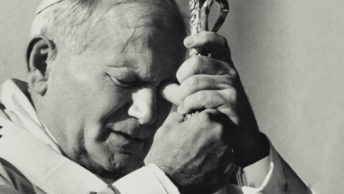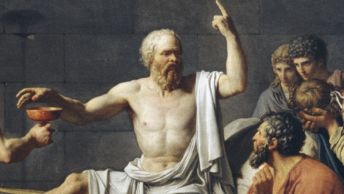
The mystery of the Blessed Trinity has been studied for two-thousand years. God is ONE in three persons!
We name God Father, Son, and Holy Spirit to highlight the fact that our relationship with God is personal and intimate. It is important for us to see how God wants to be a part of our lives. God as Trinity creates, redeems, and sanctifies us so that we may do the work necessary to cooperate in God’s act of salvation.
St. Patrick used the shamrock to explain the Trinitarian mystery to the people of Ireland. I use the analogy of music:
God the Father is like a composer who writes with notes which are His “words.” These notes as word are analagous to God the Son who is called the logos or Word of God. Finally, these notes join together to form a melody which is similar to God the Holy Spirit.
In Hebrew, the Spirit is called ruah or nephesh or the breath of God. It was the Spirit that blew across the waters of the earth creating the harmony of creation. When a musician plays a piece, he or she is encountering the composer, the notes, and the melody. However, each musician plays the piece of music differently. In the same way , we encounter God as Father, Son, and Holy Spirit; yet, each of us interprets God in a unique way. Just as in music, the composer, notes, and melody are unchanging from generation to generation (Bach’s Tocata and Fugue in D Minor is the same in the 17th century as it is in the 21st), so too is God. However, the way that a musician interprets Bach in 1750 is different than one might in 2011. Similarly, the way we view God today is different than the way we viewed Him yesterday.
Now the analogy only goes so far in that there are many composers and types of music. God, on the other hand, is unique, unchanging, inscrutable, and eternal. However, like a musician who strives to play the composition to the best of his or her ability, we should strive to know and love God to the best of our ability. The musician continually perfects his or her musicianship. We too should strive to perfect our spiritual relationship with the Trinity.








